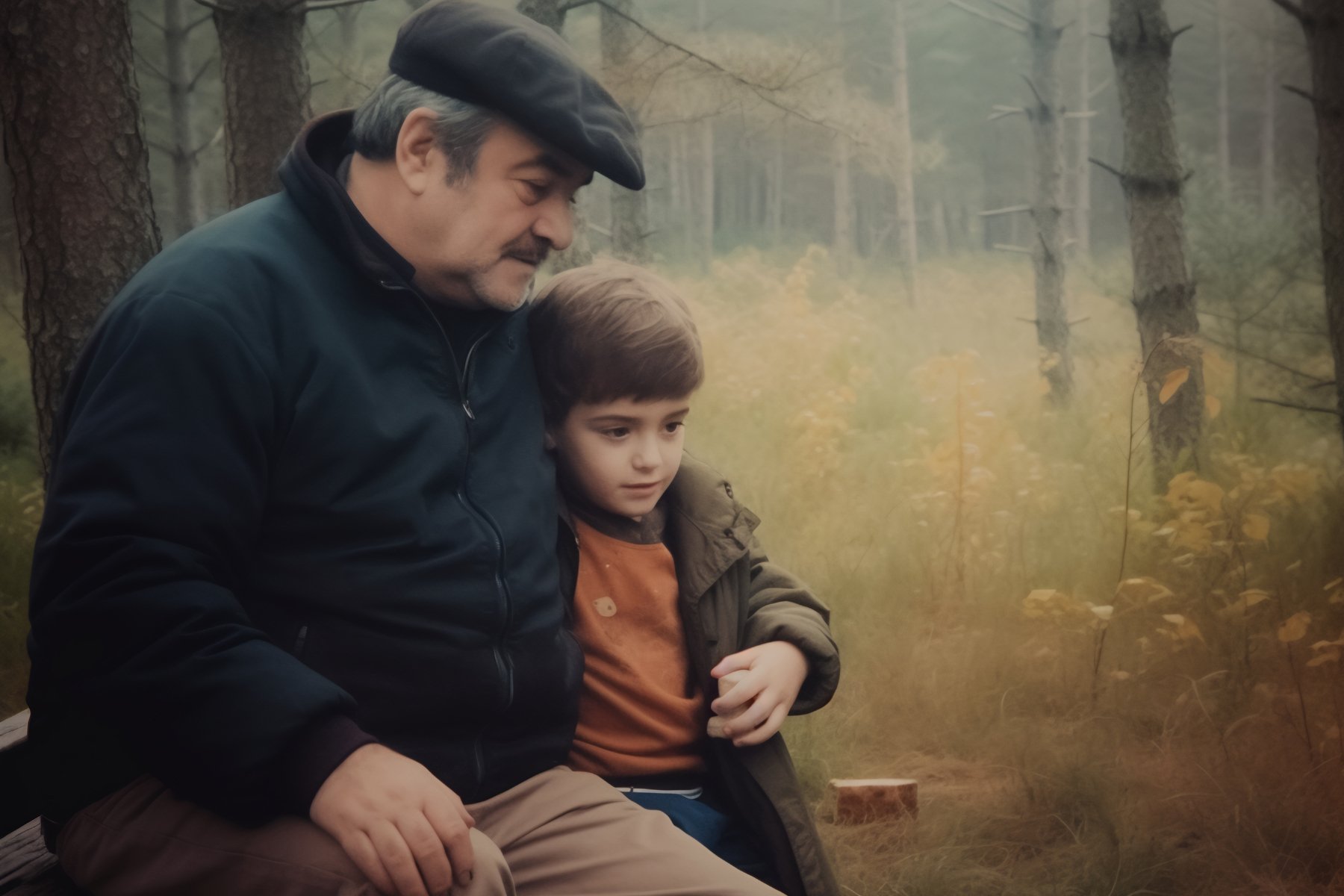FILIPPO VENTURI
Filippo Venturi is a documentary photographer and a visual artist based in Italy. He produces personal projects concerning identity and the human condition. He has documented totalitarian dictatorships in Asia, highlighting in his work the artificiality with which these countries display and narrate themselves to the world, and has witnessed neo-fascist currents in Europe and the movements that, in response, fight to protect minority rights and democracy. His works have been published in leading international magazines, such as National Geographic, The Washington Post, The Guardian, Financial Times, Vanity Fair, Marie Claire, Newsweek, Geo, Der Spiegel, Die Zeit, Stern, Internazionale, La Repubblica, Il Corriere della Sera and La Stampa.

He looks like you
(Ti somiglia) 2023-2024
The images of this project portray my father Giorgio and my son Ulisse while playing and sharing moments and experiences. But these are false memories. My father passed away five years prior to my son’s birth so they never got to meet. In 2023, tenth anniversary of Giorgio’s death, during a phase of discouragement, I wanted to create this small family album that combines authentic and artificial photographs, the latter created based on the real ones. Those images have been generated with the use of artificial intelligence (AI), creating moments that never existed, in places that will never be reachable. An attempt to find solace and to overcome the boundaries of existence through art and technology, generating images that blend illusion, dream and memory. The choice to use I.A. has obviously deprived me of the complete control over the final outcome: After supplying some photographs and the textual request to represent Giorgio and Ulisse, I have entrusted much of the creative process to the software that has processed all data in a completely autonomous way, including even misunderstandings, errors and flaws. In the artificial photographs, generated hundreds of times, Giorgio and Ulisse seem to be very different, but this did not prevent me from recognizing them thanks to some realistic details, such as facial features, wrinkles, the corpulent physique of my father or even more. All this has produced a sort of distance between me and the images generated (definitely more than there would have been if I had applied to photomontages or illustrations), in which authenticity and unpredictability seem to become hazy, placing them in a limbo between reality and fiction. For that reason, I've been able to abandon myself to faith towards those images, even for just few moments, and have back a form of relief from them.
Filippo Venturi

